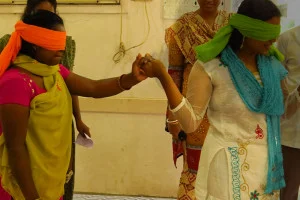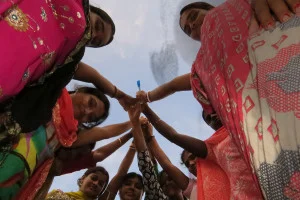Not Right. Not Okay: the implications of conflating sex trafficking and sex work
On September 24, 2020, the Bombay High Court ruled that sex workers have the right to choose their profession. To put this into context, in 2019, a red-light area was raided by the Police in Mumbai where the Police extracted a few sex workers forcefully, charged them under the ITPA and detained them in shelter homes for a year without their consent.rnThis case came up in a lower Court in Mumbai where the Judge declared that the women have to be rehabilitated in shelter homes, be given vocational training so that they can quit sex work and find a job of dignity, therefore, infantilizing the sex workers who were adults, deeming them to be helpless and forced into doing sex work. The State, therefore, took guardianship of adult women. They were trapped in shelter homes without consent and they lost their livelihoods. After a year they managed to hire a lawyer, which is very difficult to do, from inside a shelter home and brought up their case in the Bombay High Court.rnrnThe Bombay High Court’s ruling has very rightly been welcomed and appreciated by sex workers’ collectives, activists and organisations working with sex workers. Needless to mention that we are still far from ensuring that sex workers be given back their human rights and fundamental rights, but every step counts.
A couple of months ago I attended a session with Utthan- a survivor’s collective based in West Bengal where a discussion took place on this particular Court Order and Utthan members shared their thoughts on it and how it will impact survivors of trafficking for the purpose of sexual exploitation. The responses were quite interesting. There was a unanimous response and a certain level of anxiety that it would adversely affect survivors of sex trafficking because the existing legislations lack mechanisms to determine whether a person is a sex worker by choice or is carrying out the profession due to coercion.
As I reflected on their responses after the session it became increasingly evident that the ITPA provisions have foundered for both sex workers and survivors of sex trafficking. Anti-trafficking laws in India tend to abolish sex work and portray sex workers as poor and helpless women whereas anti-trafficking debates and discourses in India have largely propagated the narrative of victimhood and vulnerability. This vulnerability and victimhood narrative conflates sex work with sex trafficking and therefore does not benefit either group. It is important to decouple sex work and sex trafficking so as to address the rights of both groups.
One survivor mentioned that it can be understood by the actions and expressions of a female whether she is willing to engage in sex work or whether she is being forced to do it. She observed that even after getting beaten up by the pimps some girls refused to work and some girls pursued the profession and that was enough to understand who was trafficked and who was voluntarily pursuing sex work. From her experience, of course this observation is valid but I felt that it was not enough to make a distinction between a survivor and a sex worker. It is disappointing that there is no mechanism to make this distinction between the two groups which also affects the perceptions and ideas of the survivors.
I would like to mention that I too am a fresher in this sector. I have only limited theoretical knowledge on feminist engagement with survivors of sex trafficking which I observed is very minimal and not very empowering for survivors. What this session made me realise is that the reality on the ground level is very different. I am a Savarna woman, born and brought up in an urban setting, had access to umpteen opportunities while growing up, in a word I am privileged. This session reinforced in me that I am privileged and being a privileged woman, it is very important to check that privilege when working in this sector. For I believe that all I should do is facilitate, stand in solidarity and not use my privilege to raise my voice on behalf of the survivors whose lives are very different from mine. It is they who have to ensure that their rights are restored and as a privileged Savarna feminist I believe that I use my privilege to facilitate them but not make them depend on my privilege. This is of course easier said than done but maybe this is an approach that can make an impact.
Not only does there need to be a competent legislation on anti-trafficking it is also important for the Indian feminist movement to move away from looking at survivors as extremely vulnerable persons, feminists need to rethink strategies and engage more with survivors because at this point in time there is minimal literature and engagement of Indian feminists with survivors of trafficking from an intersectional feminist standpoint which does not also stigmatise sex work.
Being a feminist myself and a development worker I have also often struggled to understand just how to differentiate between a sex worker and a survivor. I have also questioned the pro sex work stance of some NGOs which again echoes the thoughts of Utthan members as to how to determine whether one is a sex worker by choice or coercion and anti sex work ideologies with which some NGOs support raiding brothels to rescue trafficked women which also adversely affects the livelihoods of sex workers and further stigmatise them.rnrnUnfortunately, I still do not have clarity on this issue which is why I have identified that appropriate engagement with survivors is vital before an anti-trafficking law is drafted. Survivors need to be at the decision-making levels of legislations that will directly affect them and they should not be seen as vulnerable and helpless victims. Moreover, sex workers’ collectives and survivors’ collectives must collaborate and interact with each other more to understand each other’s trauma.
Madhurima Sanyal
|
Monday
,
February 15, 2021


